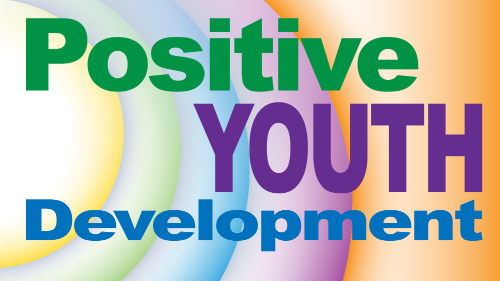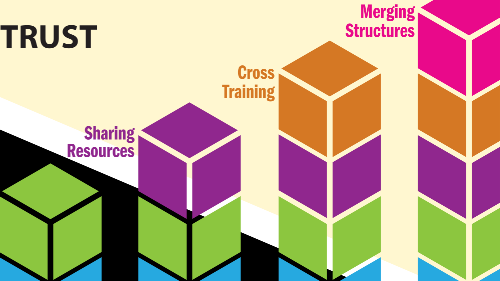Mental Health Stressors: Resources for Response and Prevention
Responding to Mental Health Crises
See help lines in sidebar.
Mental Health First Aid for Youth
Mental Health First Aid is an international education program demonstrated to be effective in teaching adults how to recognize and respond to signs and symptoms of mental health and substance use challenges. Mental Health First Aid for Youth is designed to teach family members, caregivers, and adults who work with young people how to help an adolescent (age 12-18) who is experiencing a mental health challenge or crisis. National Council for Mental Wellbeing.
You Can Help a Student: Recognizing When Adolescent Students Are Struggling and How to Help Them
In this 2021 webinar, Diana Cusumano describes the landscape of youth mental health nationally. She identifies signs of distress in youth and discusses how to respond particularly as these signs relate to potential suicide. ACT for Youth.
Self-Injury & Recovery Resources
This website houses resources on non-suicidal self-injury for a range of audiences. Cornell University.
Fair Weather Ahead: Coping with Adolescent Stress
In this 2017 webinar, Janis Whitlock distinguishes between normal stress and chronic distress in the context of adolescent development. She also discusses ways we might respond. ACT for Youth.
Responding to Community Trauma
Helping Youth After Community Trauma: Tips for Educators
Available in English, Spanish, and Madarin, this tip sheet describes how traumatic events, such as a natural disaster, school violence, or the traumatic death of a peer or educator, can affect students' learning, behavior, and relationships. It also suggests helpful educator/adult responses. National Child Traumatic Stress Network (NCTSN).
Psychological First Aid (PFA)
This PFA Field Operations Guide and related resources give guidance on helping survivors in the immediate aftermath of a traumatic event, crisis, or disaster. NCTSN.
PFA Online Course
This course was designed as an overview to the concepts and applications of psychological first aid as it applies to assisting survivors impacted by a disaster or emergency event, particularly in the field during a response. This training may also be useful to other individuals when dealing with a personal crisis in their family, community, or workplace.
Prevention: Curricula and Activities
Social and Emotional Learning Toolkit
Social and Emotional Learning (SEL) is a student-centered approach that emphasizes building on students' strengths; developing skills through hands-on, experiential learning; giving young people voice in the learning process; and supporting youth through positive relationships with adults over an extended period of time. The SEL Toolkit offers web-based resources to help youth work professionals provide opportunities for social and emotional learning. Resources include manuals, activities, fact sheets, videos, and websites.
Mind Matters: Overcoming Adversity and Building Resilience
Mind Matters' lessons teach people aged 12 and up to heal from traumatic and other negative experiences with innovative methods based on current research and neuroscience. These skills give individuals a way to take charge of their emotions and improve their states of mind. Participants learn to address their physical, relational, and mental health needs. Dibble Institute.
Mindfulness-Based Programs for Stress and Health
Mindfulness-Based Programs (MBPs) can have wide-ranging health benefits. In this 2022 presentation, Joshua Felver describes the relationship between stress, MBPs, and health in young people. Viewers gain a better understanding of the relationship between stress and mindfulness, increase their familiarity with core components of MBPs for adolescent health, and participate in a brief experiential activity with one evidence-based program.
Prevention: Trauma-Informed Youth Work
Using a Trauma-Informed Approach
Program design for young participants should always take trauma into account. Guidance and resources for youth program planners are available in the Youth Development Program Toolkit. ACT for Youth.
Creating Inclusive Program Environments for Youth with Different Abilities
Young people with learning disabilities, ADHD, autism spectrum disorder, or trauma do not always disclose these conditions in program settings. Fortunately, even when facilitators lack this personal information about participants, there are ways to make programs more inclusive. This curriculum aims to provide youth work professionals with information, practices, and activities that will help them promote inclusion and engagement for all young people. ACT for Youth.
Trauma-Informed SEL Toolkit
Trauma-informed SEL is an approach to fostering youths' social-emotional development with practices that support all students but are particularly responsive to the needs of children and youth who have experienced trauma. This toolkit for educators includes a multimedia presentation, handout, and facilitator's guide featuring research-based strategies. Transforming Education.
Implementing a Trauma-Informed Approach for Youth across Service Sectors
This brief discusses the concept and prevalence of trauma; techniques for coping with trauma at an individual and systems level; the core principles for building a framework for understanding trauma; and implementation of elements essential for a trauma-informed system. Interagency Working Group on Youth Programs.
Working with Adolescents: Practice Tips and Resource Guide
This technical assistance tool offers resources to child welfare, substance use treatment providers, health care, and other community agencies serving adolescents at risk of misusing or abusing substances. National Center on Substance Abuse and Child Welfare (NCSACW).
Using a Trauma-Informed Approach
Program design for young participants should always take trauma into account. Guidance and resources for youth program planners are available in the Youth Development Program Toolkit. ACT for Youth.
Creating Inclusive Program Environments for Youth with Different Abilities
Young people with learning disabilities, ADHD, autism spectrum disorder, or trauma do not always disclose these conditions in program settings. Fortunately, even when facilitators lack this personal information about participants, there are ways to make programs more inclusive. This curriculum aims to provide youth work professionals with information, practices, and activities that will help them promote inclusion and engagement for all young people. ACT for Youth.
Trauma-Informed SEL Toolkit
Trauma-informed SEL is an approach to fostering youths' social-emotional development with practices that support all students but are particularly responsive to the needs of children and youth who have experienced trauma. This toolkit for educators includes a multimedia presentation, handout, and facilitator's guide featuring research-based strategies. Transforming Education.
Implementing a Trauma-Informed Approach for Youth across Service Sectors
This brief discusses the concept and prevalence of trauma; techniques for coping with trauma at an individual and systems level; the core principles for building a framework for understanding trauma; and implementation of elements essential for a trauma-informed system. Interagency Working Group on Youth Programs.
Working with Adolescents: Practice Tips and Resource Guide
This technical assistance tool offers resources to child welfare, substance use treatment providers, health care, and other community agencies serving adolescents at risk of misusing or abusing substances. National Center on Substance Abuse and Child Welfare (NCSACW).





